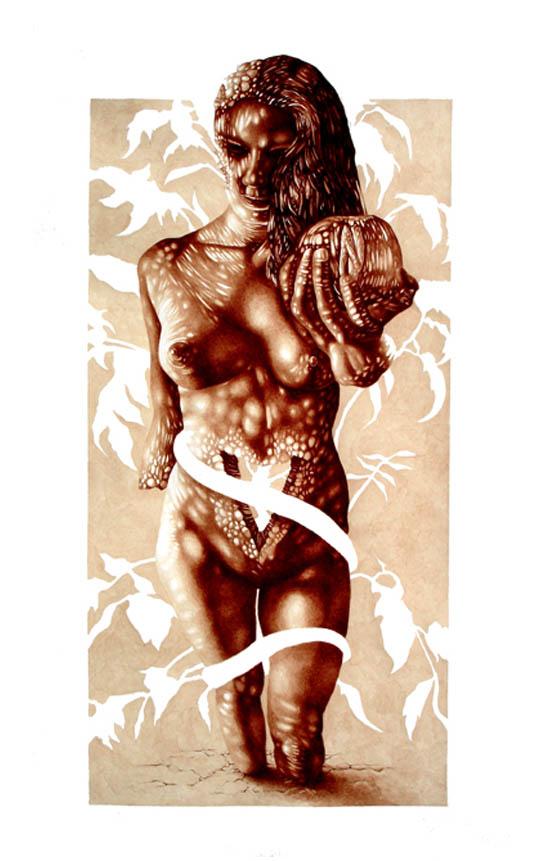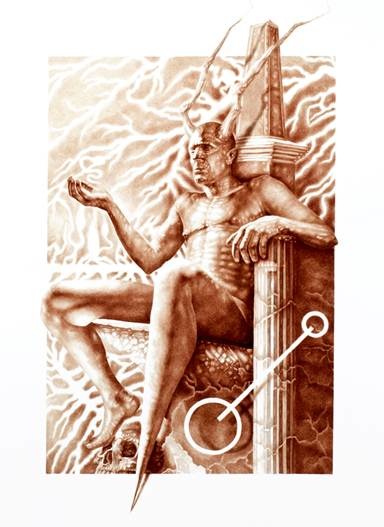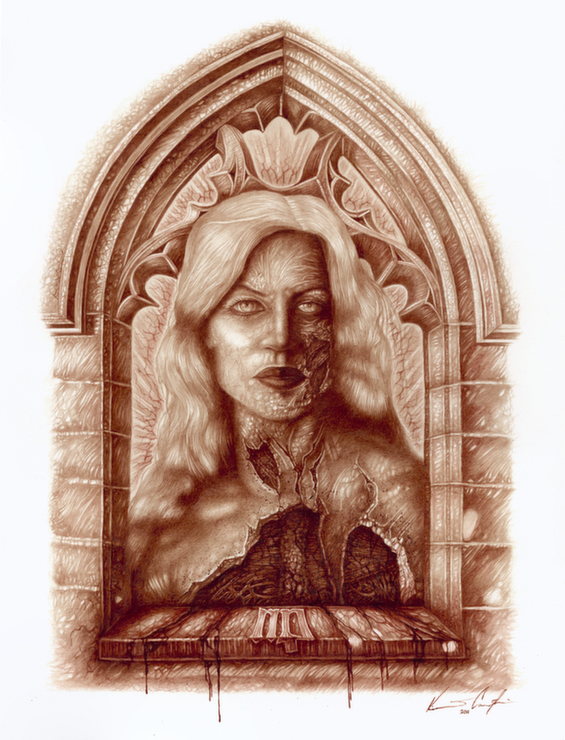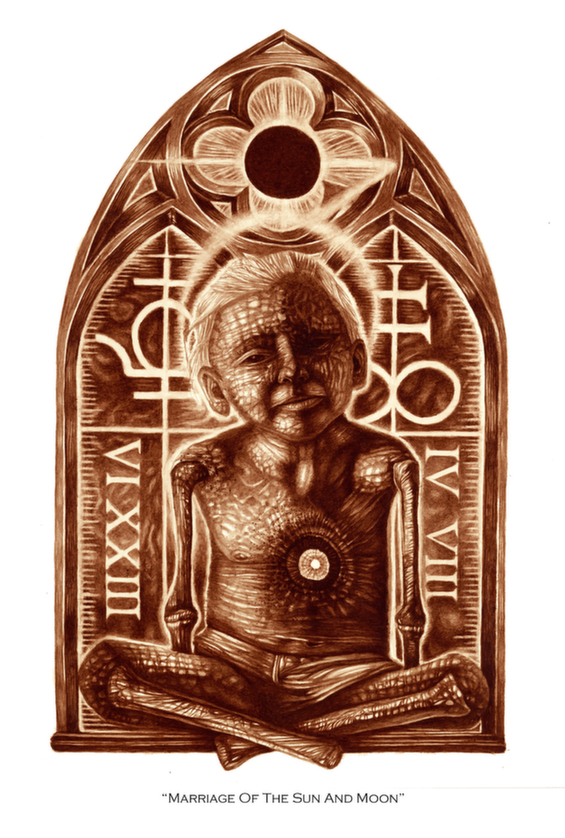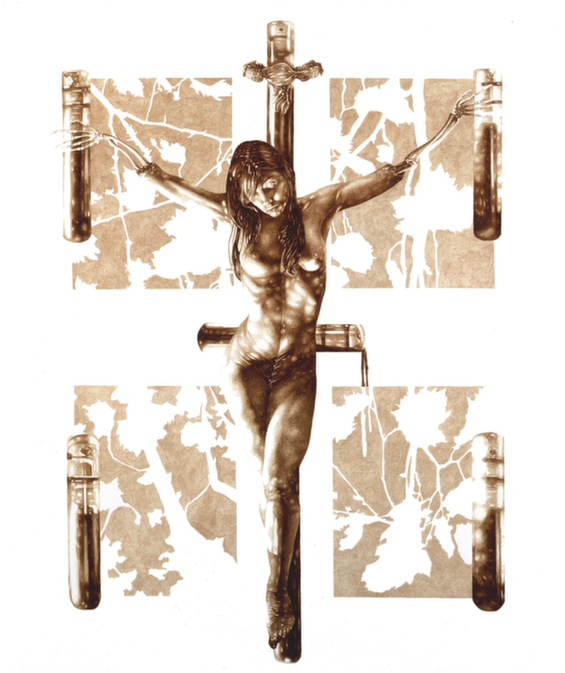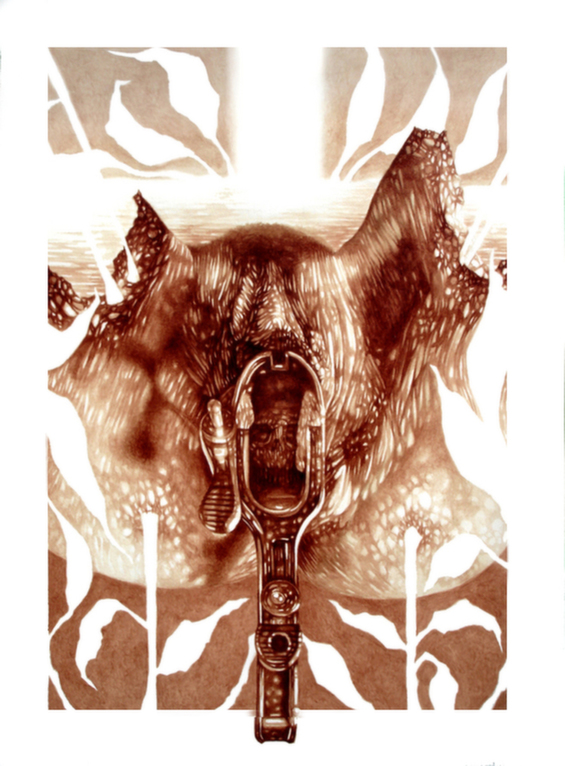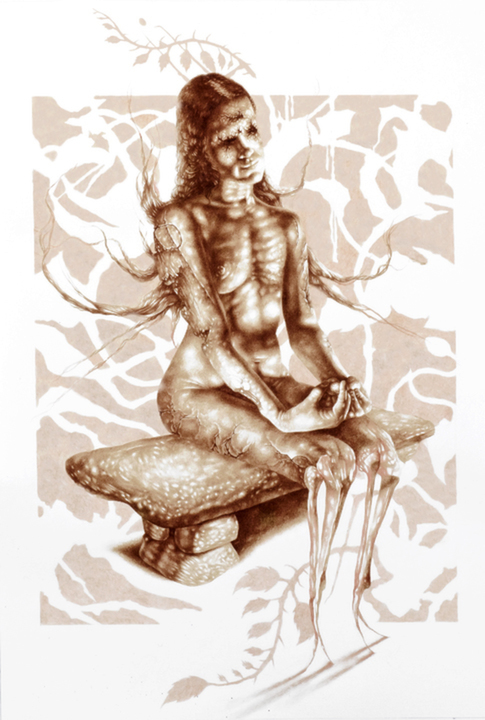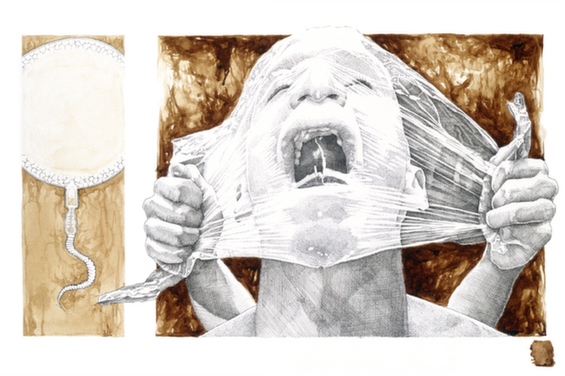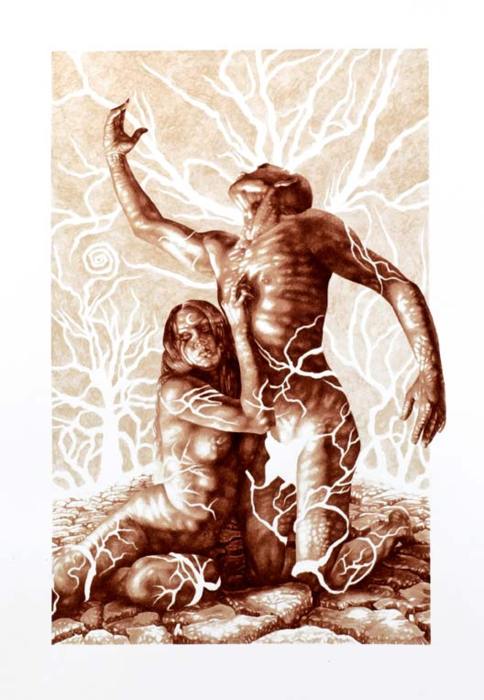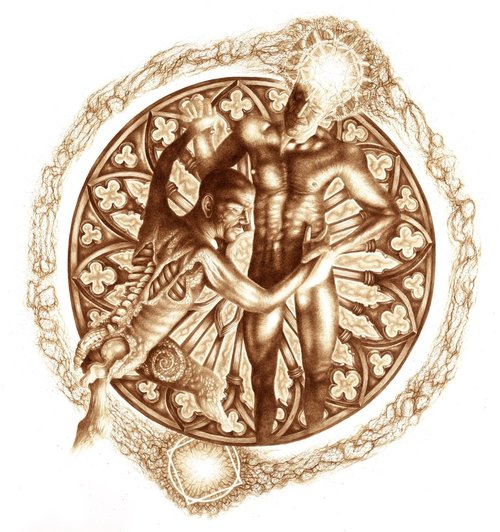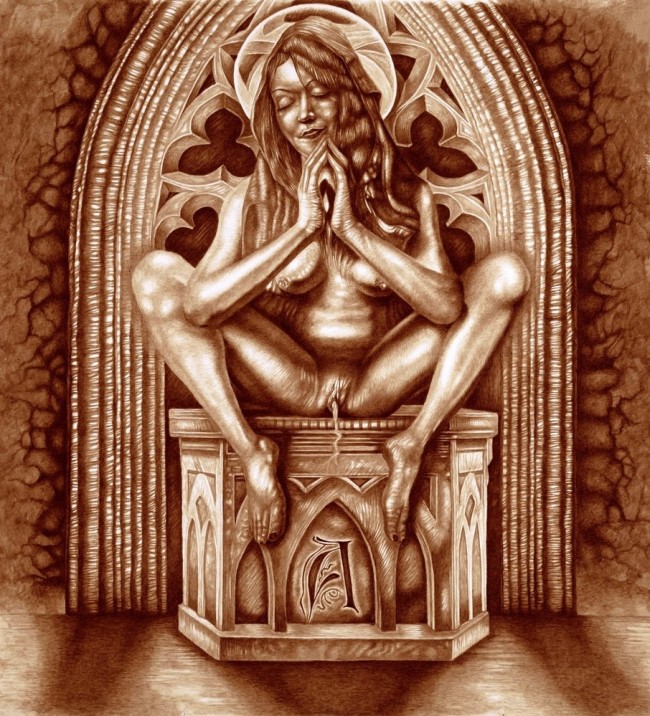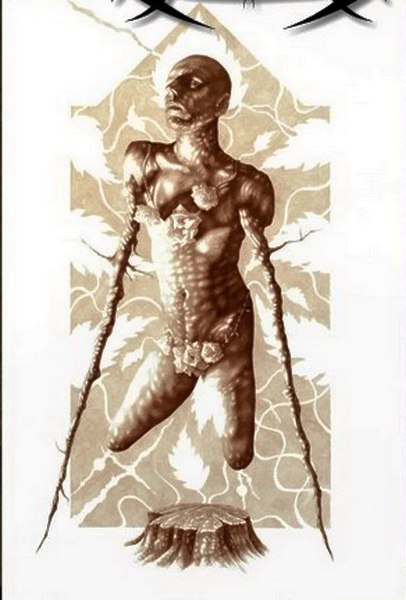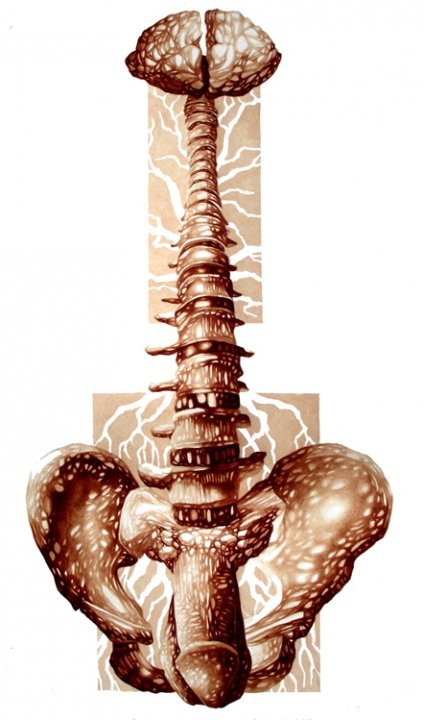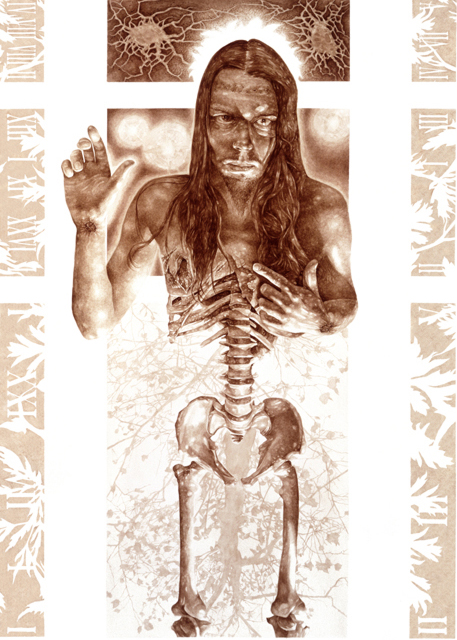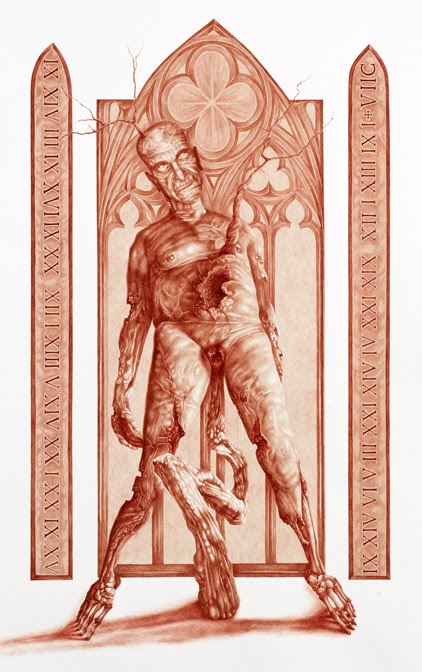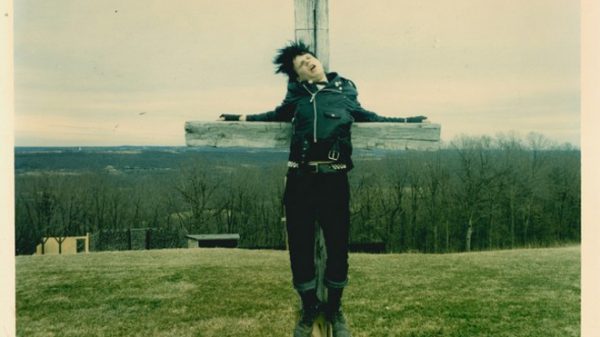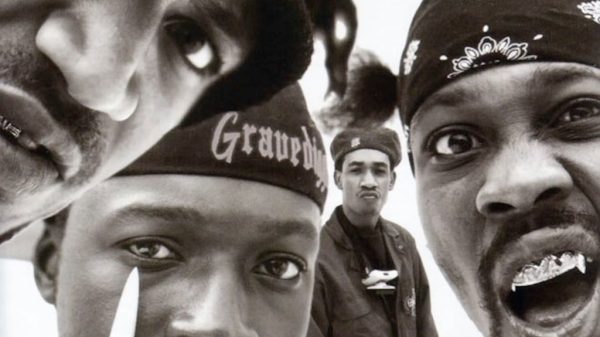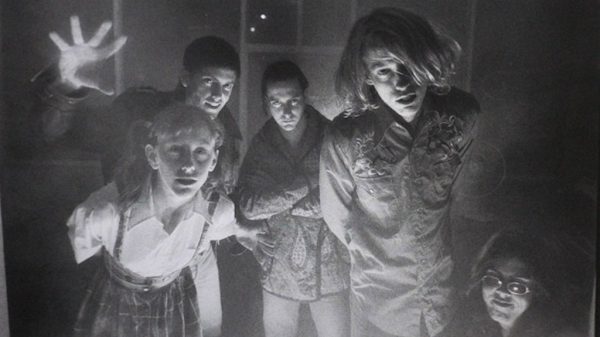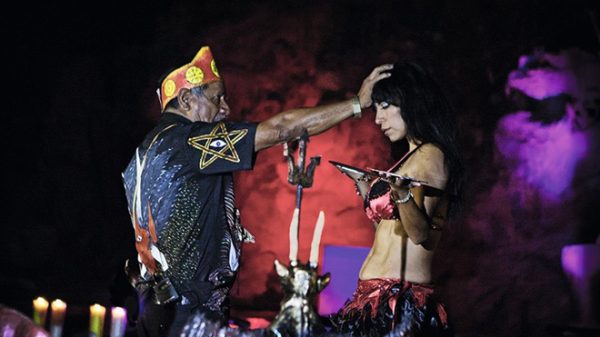via Beautiful Decay
For the surrealist painter Vincent Castiglia, his “work is literally a blood sacrifice on the altar of art;” using up to 30 vials of his own blood for his darkly sprawling paintings, he hopes to imbue his richly philosophical work with his own living tissue. The artist’s blood shares the same iron oxide pigment as many commercial paints, lending each image its dark rusty tone and heightening the drama of Castiglia’s macabre scenes.
For this blood artist, the unusual medium works in service of larger themes. In extracting blood from his own body, sometimes 15 vials at a time (less than a blood donation), he allows the literal life-giving substance to more deeply examine fertile powers of mankind. With the careful painting of milk-filled breasts and deliberate vaginal imagery, Castiglia celebrates the allegorical implications of motherhood and childbirth. A female figure rises from the earth, howling like the ancient Greek goddess Gaia, who birthed the entire world.
The idea of human creative potential becomes complicated with the dark suggestion of our mortality. A mother nurses from a wheelchair, her skeletal legs and decaying infant painted in dried blood, reminding viewers that with life comes inevitable ruin. Laid upon a cross, a woman bears the suffering of Jesus, her abdomen radiating light while her vulva appears to be ominously stitched shut.
The introduction of religious imagery helps resolve the tension between death and birth. Borrowing shapes and floral imagery from early Christian painting, Castiglia implies a connection between death and eternal life. In sacrificing his own blood, the artist fills not a Holy Grail but a canvas, elegantly preserving his own flesh for our consideration.



